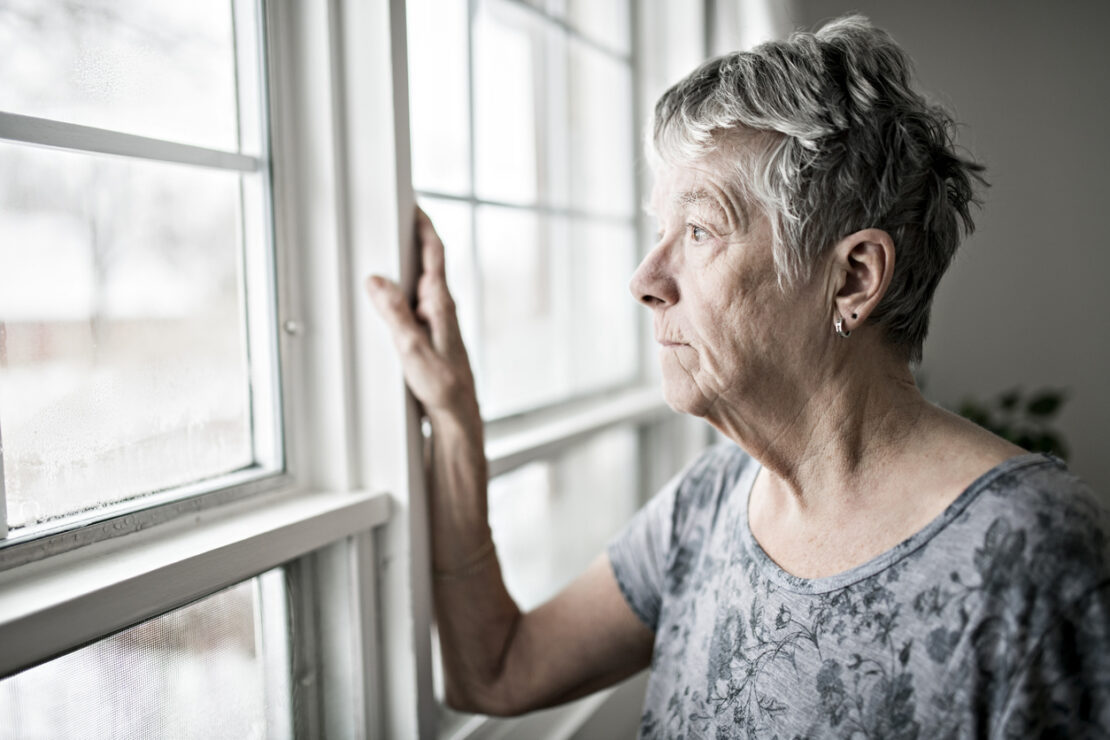When you go to the doctor for your check-up, your doctor probably talks to you about your weight if you could stand to lose a few pounds. If you smoke, he or she likely mentions that you should quit.
But there’s something else that is a bigger health threat than either obesity or smoking…and doctors almost never discuss it.
Brigham Young University researchers looked at 218 studies of the health effects of social isolation. They involved more than 4 million people.
The scientists discovered that lonely people have a 50% higher risk of early death. By contrast, obesity raises the chances of dying before age 70 by only 30%.[1]
How Loneliness Kills
Loneliness is linked to a wide range of serious health problems. As you might expect, it boosts depression and suicide. But it’s also tied to high blood pressure, stroke, anxiety, immune problems, inflammation, and heart disease.[2]
Dr. Julianne Holt-Lunstad is a professor of psychology at Brigham Young University. She led the research team and said the study is a wakeup call that loneliness should be recognized as a major health threat.[3]
“The magnitude of the risk exceeds that of many leading health indicators,” she said. “We are facing a loneliness epidemic. The challenge we face now is what can be done about it.”[4]
Loneliness is increasing in the U.S. The most recent census data shows more than a quarter of the population lives alone. More than half of adults are single. And the number of children per household has declined.[5]
A 2019 study found that two-thirds of Americans often or always feel lonely. And now, during the pandemic, many of us feel more isolated than ever.[6]
8 Ways to Beat Loneliness
Dr. Paul Nussbaum is an adjunct professor of neurological surgery at the University of Pittsburgh School of Medicine. He is one of the world’s leading experts on brain aging.
Dr. Nussbaum says loneliness profoundly damages the structure of the brain. “It actually begins to shrink and weaken,” he says. Loneliness “is really the equivalent of having a chronic illness.”
Socialization is especially important for older people because it helps maintain mental sharpness, he said.
Here are eight ways to reduce social isolation:
- Reach out. Call a friend or family member. Don’t always wait for them to contact you. Tell yourself you’re not imposing and they’ll be glad to hear from you.
- Get a pet. A dog or cat offers companionship.
- Join a club. Find one that focuses on one of your special interests and ignites your passion. It could be cooking, knitting, movies, whatever. The important thing is to meet others who share your enthusiasm. Many clubs have turned to virtual meetings during the pandemic.
- Join a book discussion group. You’ll read a book and then meet with others who have read it and share your views. Check with your local library to join.Again, book clubs are largely meeting online these days.
- There’s a myriad of organizations and civic entities that will welcome volunteers. Check with your local hospital, police department, or church.
- Get involved at church. Faith communities are a wonderful place to bond with others who share your values.
- Go back to school. Many colleges allow seniors to audit classes online classes for free. Study literature, history, astronomy, science, psychology, or anything else that interests you.
- Make plans for the future. Giving yourself something to look forward to fights depression and a lack of purpose in life.
Editor’s Note: If you’re worried about getting older, there’s something else you should know… It’s NEVER too late to build a strong brain.
Discover neurogenesis, the new science of brain cell creation that allows you to stay mentally sharp for the rest of your life. Get all the details in our monthly journal Independent Healing. It’s your best source for unbiased, science-backed health information.
Related Articles
Research Shocker: Baby Boomers Less Mentally Sharp Than Their Parents
The Simple Remedy for Pandemic Stress
Want to Live Longer? Get a Dog
[1] http://www.businessinsider.com/loneliness-greater-public-health-hazard-than-obesity-2017-8
[2] http://www.telegraph.co.uk/science/2017/08/06/loneliness-deadlier-obesity-study-suggests/
[3] http://www.telegraph.co.uk/science/2017/08/06/loneliness-deadlier-obesity-study-suggests/
[4] https://www.eurekalert.org/pub_releases/2017-08/apa-sli072717.php
[5] http://www.apa.org/news/press/releases/2017/08/lonely-die.aspx
[6] https://www.cigna.com/about-us/newsroom/studies-and-reports/combatting-loneliness/

